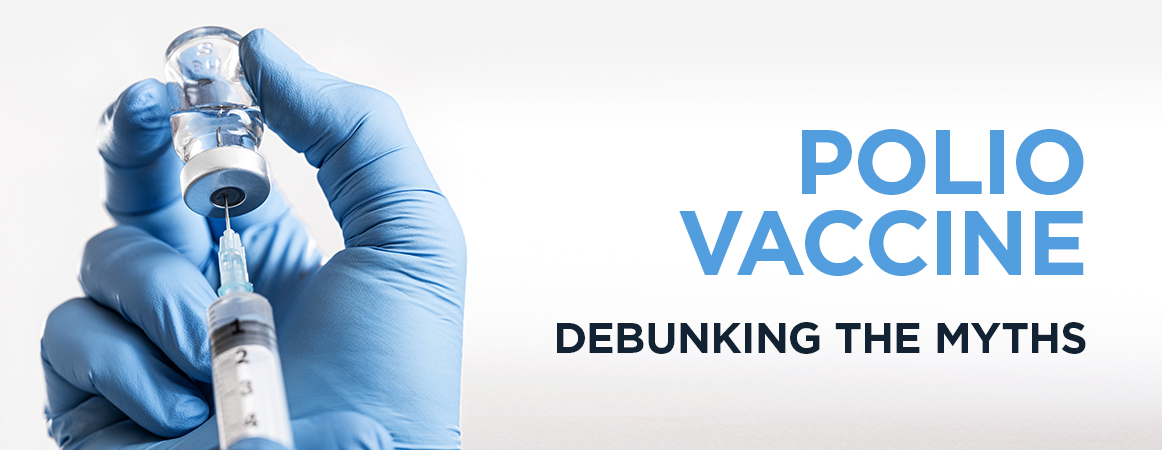Polio Vaccine: Debunking the Myths
Poliomyelitis, commonly known as Polio, is an infectious disease caused by a virus that is transmitted through the fecal matter of infected people. There is no cure for polio but it can be prevented through immunization. Every day, polio vaccines save children’s lives all over the world.
Vaccination efforts in Pakistan have been hampered by an increase in polio vaccine boycotts. The less developed districts demand governance outcomes before any agreement to give their children the vaccine.
Pakistan has made tremendous progress in the fight against polio. The country was close to eradicating the disease in 2018 with only 12 polio cases in Pakistan. However, unfortunately, it experienced a sudden rise in 2019, with 129 cases of polio reported.
Who Needs the Polio Vaccine
The most vulnerable age group for contracting polio is children under the age of five. To stay protected, all children under 5 should be vaccinated with the polio vaccine during every round of immunization, as recommended by the guidelines.
Debunking the Myths of Polio Vaccine
Unfortunately, Pakistan has not been able to completely eradicate polio from its population. The reason for this is multifaceted: low immunization coverage, poverty, illiteracy, and limited access to vaccines are all contributing factors. Moreover, the rumors that circulate and misleading advice about polio never come to an end.
Following are the common myths related to Oral Polio Vaccine (OPV) in Pakistan.
Myth: Polio Vaccine is Not Safe
It is extremely safe, with a very low risk of serious complications or allergic reactions.
Vaccines go through a series of tests before being released to the public. The testing includes clinical trials and rigorous safety standards. Once approved, the vaccine continues to be monitored closely for safety reasons.
Myth: OPV should Not be Given Multiple Times
The OPV is designed to be given in four doses to children under the age of five. The WHO has said it’s safe to give four or more doses to children. These doses boost immunity and are safe to administer.
The polio vaccine is designed to be administered multiple times. The first dose strengthens a child’s immunity against polio, and the next doses further strengthen their protection.
Myth: OPV has Side Effects
The OPV has saved millions of people from the permanent paralysis from polio. Children are at greater risk of contracting and spreading the polioviruses than they are of contracting any adverse effects from the vaccine. The UNICEF noted that the oral polio vaccine is safe and effective. It is also the vaccine recommended by WHO for the global eradication of the polio virus.
Myth: Polio Vaccine Contains Anti-Fertility Agents
One of the most common myths about the polio vaccine is that it causes infertility or impotence. However, there is no scientific evidence to support this claim. The polio vaccine does not contain ingredients to make a person infertile and there are no anti-fertility agents included in the production process that could cause infertility.
The test conducted in 2015 by the National Control Laboratory for Biologicals, controlled by the Drug Regulatory Authority of Pakistan (DRAP) confirmed that the polio vaccine in Pakistan is halal and does not contain any hormones that may cause infertility.
The OPV has been deemed safe and halal by Islamic leaders all over the world.
To ensure the protection of children and communities from polio, we must vaccinate. If a population is fully immunized against polio, it will be protected against the spread of both wild and vaccine-derived strains of poliovirus. That’s why it is vital to keep immunization rates high and to ensure that children and communities are protected from poliovirus.
Memon Medical Institute Hospital is providing the facility of Polio Vaccine with all ease, feel free to get polio vaccinated.


